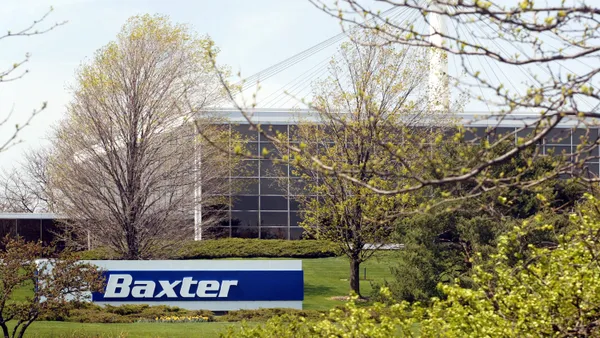Your CRM is a critical tool for sales performance.
At least that’s what the sales rep sold your team on. In reality, nearly half of all companies are underwhelmed by their CRM’s impact.
What’s the problem?
Bad data. In fact, bad data costs the US economy $3.1 trillion every year and it hurts every part of your organization (and MedTech companies are especially vulnerable).
The good news:
You can give your CRM data a huge boost with one simple tweak.
In this article, we’ll walk through the ugly side of CRM data, how it’s draining your revenue, and top strategies to turn CRM into the revenue generator it’s meant to be.
Why am I losing 10%?
It’s not just you.
In one survey representing ~1,250 companies in verticals such as healthcare and technology, “44% of companies estimate they lose over 10% in annual revenue due to poor-quality CRM data.”
The pattern is consistent:
- CRM data is inaccurate.
- Team members rely on (shoddy) data.
- Priorities get jumbled.
Over time, these missed opportunities not only add up to real revenue leaks but also damage your customer relationships and trust in your brand.
Bad data is the worst
Wasted time. Lost sales potential. Failing to pursue new, valuable initiatives. Compliance issues. These are all byproducts of bad data.
On top of that, many teams don’t know their data is misleading them. Which means your decisions are being misled, too.
If your data is:
- Inaccurate
- Wrong names, emails, or phone numbers
- Faulty transaction records, mis-recorded interactions
- Incomplete
- Lack of essential information
- No transaction or interaction history
- Irrelevant
- Old contact details, inactive customer accounts
- Info that doesn’t serve the sales process or customer relationship
- Inconsistent
- Varied data formats
- Mismatched or duplicate information
- Inaccessible
- Limited access for team members
- Difficult to navigate or retrieve information
Let’s fix it.
Use these strategies to level up your data
Strategy 1: Automation
To start, the simplest tweak is to automate data entry and management. Stop trying to convince your teams to do rote, mindless, manual data entry.
By automating the data entry and management processes, you can ensure that your team’s data is always accurate and up-to-date.
Bonus: It gives time back to your team to focus on higher-value activities, like spending time in hospital systems and with physicians in operating rooms.
Strategy 2: Data Cleansing
Consider investing in a CRM data cleansing tool. These tools can help your team identify and correct errors in their data. Additionally, using a CRM data cleansing tool saves your company time, is cost-effective, and will ensure data integrity.
When choosing a cleansing tool, look for software that provides smart duplicate data detection, bulk data formatting, and data cleansing automation. Check out the 13 best data cleaning tools for your customer data to compare solutions.
Strategy 3: Accessibility
Make sure to review the data frequently. And put it in an easy-to-use format. Looks matter. Stale, ugly, private data is of no use to anyone.
Then, share the data with other stakeholders. Show the positive impact on marketing campaigns, supply chain, and inventory management. Gather their feedback to make the review process collaborative. This ensures the CRM data is invested in and made central to your business.
Ready to plug your revenue leak?
Turn bad data into reliable, accurate data with Clari. Organize and strengthen your team’s sales process. Increase your revenue. And make better strategic decisions, like Singular Genomics.
Singular Genomics partnered with Clari to achieve 10x time savings for reps with automated data collection and CRM sync. Read the full case study here.
Improve your CRM data quality and more with Clari.










